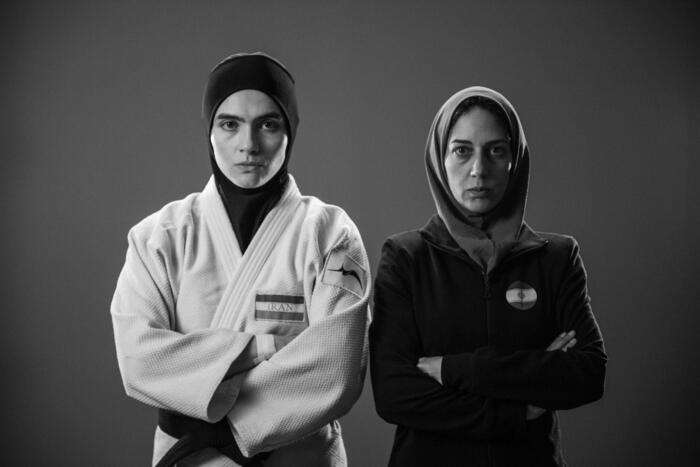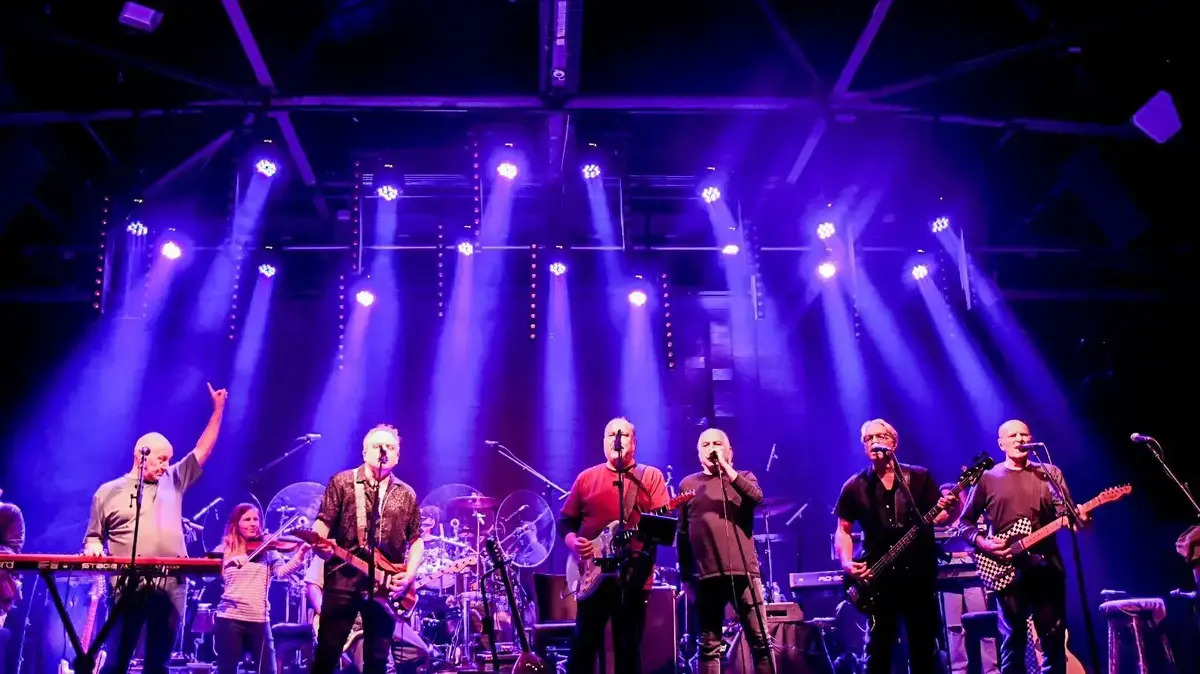Just five years ago, 35,000 people sang at a concert in Cairo the songs of the most influential alternative rock band in the Middle East, the Lebanese Mashrou Leila, a symbol of LGTBI rights critical of homophobia and racism in its lyrics.
On the 11th, its leader, Hamed Sinno, announced the separation of the group due to the harassment suffered on the Internet and the veto of their performances in the region, which has deprived them of their majority audience and their main source of income.
"None of us are thinking of working together again [...] Even before covid it was costing us to earn enough to be able to continue," Sinno explained in an interview for the Lebanese podcast
Sarde After Dinner
, the first time he returned to his country since 2019. The vocalist, who has publicly expressed his homosexuality, moved to the United States (he has both nationalities) when the region closed its doors to them.
Jordan was the first to cancel his concert, in 2016, initiating an unofficial ban with conflicting justifications.
“The first time [the group was banned] it was like: 'This is homophobia, you can't do it,' they were intimidated;
then it was like 'ok, we're homophobic, now get out of here' [...] When you can't play for your audience, you feel emotionally hurt, ”he lamented.
Mashrou Leila's plan was to tour more in North America, Europe, Australia and South Asia, but the pandemic prevented that.
Sinno identified two turning points in the decision to end the adventure that began in 2008, when he joined six other students from the American University of Beirut for a
jam session
.
From there, in fact, it takes its name Mashrou Leila, which originally meant in Arabic: "The project of one night", because they only intended to act that time, not to form a band.
Then they changed the last letter, so that it read Leila (the female name), instead of night, in a commitment to puns that are also present in their songs.
The first turning point came with the dozens of arrests of attendees that followed the massive recital in Cairo, which an Egyptian media defined as "the gathering of thousands of perverts for a gay satanic orgy."
The only detainee, lesbian activist Sarah Hegazi, was imprisoned, tortured and sexually assaulted.
The photograph in which she appears laughing and waving the rainbow flag during the concert returned to the networks in 2020, when Hegazi's suicide in Canada became known, where she - alone and traumatized - had settled as a refugee.
Two years later, the Byblos festival in Lebanon called off the performance for security reasons, following a campaign against blasphemy by the Maronite church and mounting death threats on social media.
The singer told in the interview that the police report includes conversations in WhatsApp groups in which they planned to buy weapons to shoot at the crowd, if the concert had been held.
The cancellation germinated in Beirut an event in solidarity with dozens of musicians, which was attended by more than 1,000 people.
Bars and restaurants also played songs by Mashrou Leila at the time they had to go on stage in Byblos.
Insults in networks
Born into a Muslim family, Sinno also justified the separation by insults on social networks, such as those he received after sharing on Facebook a newspaper article about Madonna illustrated with a montage in which the face of the pop diva replaced the icon in an icon. of the virgin Mary.
“They made us feel very pressured.
We couldn't keep working and creating like this […] I decided that was enough.
I also felt that each member of the band had a lot of stress on them.
It is not a normal life that 100,000 people tell you on Facebook that you must die, ”he lamented.
The lyricist explained that in recent years he had a hard time writing because of the pressure.
“Before, he took the pen and wrote.
I loved it, it was my obsession.
At one point, he looked at the blank sheet of paper and was perfectly aware that whatever he wrote,
Mashrou Leila was one of the few musical groups in the region that defended the rights of the LGTBI community.
In 2010, their leader Sinno was the first musician in Lebanon to wave the pride flag on stage, which was passed to him from the audience.
Four years later, Mashrou Leila graced the cover of the famous
Rolling Stone
music magazine .
No band in the Middle East had done it before.
They leave four albums and the production of a short film about the 2015-2016 Syrian refugee crisis and corruption in Lebanon.
Follow all the international information on
and
, or in
our weekly newsletter
.
Subscribe to continue reading
read without limits
Keep reading
I'm already a subscriber

/cloudfront-eu-central-1.images.arcpublishing.com/prisa/CFPOCJSDJFCPTDNJOUR5WF2CLE.jpg)






/cloudfront-eu-central-1.images.arcpublishing.com/prisa/H2U67J3DUNAJ7PTX2UNLIVIPEM.jpg)
